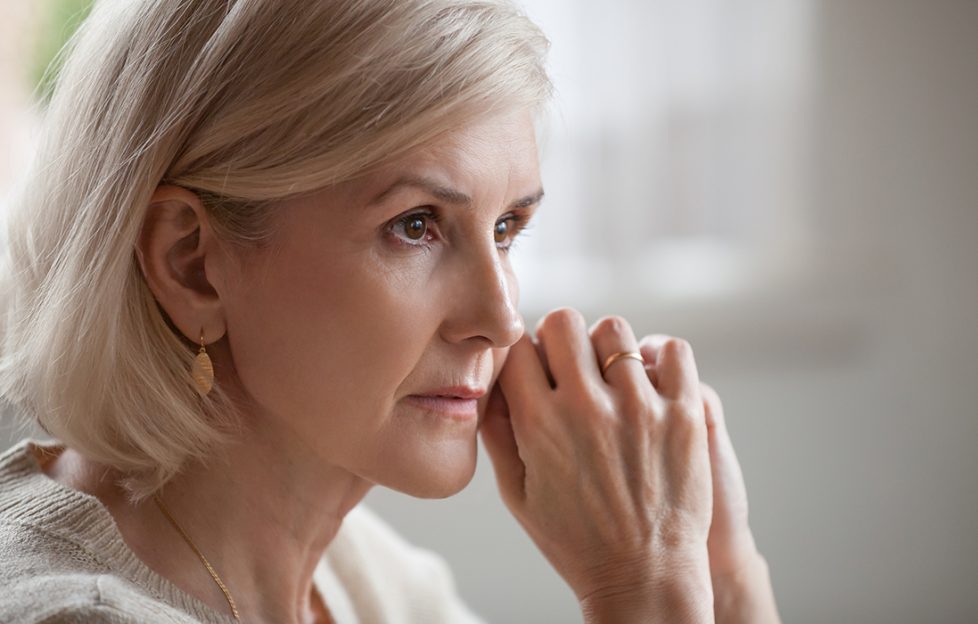Dr Philippa Kaye on Eating Disorders

Dr Philippa talks about eating disorders and explains what help and support is available
Mandy had rarely been seen in the surgery, but she had come at the insistence of her family and was accompanied by her husband. She seemed reluctant to talk initially and asked her husband to tell me what he was worried about, which was her weight, eating and exercise.
Mandy had lost a lot of weight over the past couple of years. Unintentional weight loss is a potentially serious symptom which may be related to cancer but Mandy’s weight loss was not unintentional. She’d worked hard to lose weight and felt she was still overweight and unhealthy. She had started by restricting to protein, fruit and veg, but then got more and more restricted.
Her husband reported she ate extremely little and avoided all social or family situations where eating was involved – or at these events she busied herself in the kitchen and didn’t sit and eat.
Mandy said she ate later, or had eaten a big breakfast that day but it was clear that eating was something she restricted and she said she didn’t feel many foods were “safe” for her to eat.
She also exercised intensely, often walking or running for over two hours each day. If she did eat a meal she insisted on running again.
Up until a few months earlier Mandy had thought she was managing well, but recently she felt exhausted, irritable, kept getting one cold after another. After listening to her family and friends she began to think she had an eating disorder.
Eating disorders can affect anyone says Dr Philippa Kaye
Although often thought of as affecting adolescent girls, eating disorders can affect anyone, of any age, gender or background.
One in four people with eating disorders are men and the UK eating disorders charity Beat Eating Disorders reported that about 1 in 6 calls to their helpline in 2015 were people aged forty or older.
Different types of eating disorders
There are various different eating disorders including anorexia nervosa, bulimia nervosa, binge eating disorders and more.
Although there is not one cause and the combination and severity of symptoms may differ between people, commonly controlling food is used to manage difficult emotions, leading to a disordered relationship with food and eating.
The negative thoughts may focus around self-esteem, distorted body image, fear of being overweight or gaining weight, and anxiety. These thoughts can be overwhelming and extremely intrusive and it is these thoughts which then lead to change in behaviours, such as restricting eating, fasting, excessive exercise, laxative use or purging or more. In turn these then lead to symptoms such as weight loss, fatigue, constipation but also in time can affect fertility, the immune system and lead to organ damage.
Eating disorders are extremely serious and anorexia is the leading cause of death for all mental health disorders.
Dr Philippa Kaye explains where to get help
Although Mandy had come to the realisation that she had an issue, she had not wanted to come, saying she wasn’t “thin enough” to warrant help. She felt it was all her fault and she also did not know how she could ever get better.
Her symptoms had started at the beginning of the coronavirus pandemic and she had been extremely anxious about leaving the house, buying food or shopping, in case she became unwell with Covid.
We had a long discussion that her situation was not her fault, and treatments are available and can be effective. She agreed to a referral to the eating disorders service, though locally the wait is long. She agreed to psychological therapy in the meantime.
If you are concerned about yourself or a loved one, support is available from Beat Eating Disorders, the UK eating disorders charity website, or their helpline on 0808 801 0677.
Have you heard of Orthorexia?
The condition orthorexia is not yet formally recognised as an eating disorder, however the term is being used more frequently. This condition can occur when “clean” eating becomes obsessive, intrusive or overwhelming.
Like in other eating disorders the change in your diet may be related to a need to stay in control. In orthorexia the thoughts about clean eating means you may become more and more restrictive in your intake which then leads to physical symptoms such as weight loss. It also then may interfere with other aspects of your life, so you choose to avoid social situations where “clean” foods may not be available, or if you eat them it leads to feelings of anxiety, shame or guilt.
If you are concerned this could be affecting you, please see your doctor.
Advice given in this article and on the My Weekly website and magazines is not meant to replace personalised medical advice from your doctor. If you have any health concerns please see your doctor.
Article written on June 2, 2022; article reviewed and updated on April 2, 2024
Each week we’ll ask Dr Philippa Kaye to talk about a prominent health issue, so look out for more articles in our health and wellbeing section in coming weeks. Read her advice on Shingles, Ovarian Cancer, Endometriosis and Long Covid now.






